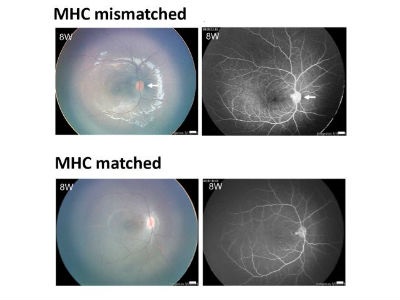
Scientists at the RIKEN Center for Developmental Biology (CDB) have successfully transplanted retinal pigment cells taken from stem cells of one monkey into the eyes of another monkey without rejection and without the need for immunosuppressant drugs.
The study reportedly tested a technique called MHC (major histocompatibility complex) matching as a way to overcome issues created by immune responses and tissue rejection when transplanting tissue derived from other individuals. Through their research, the scientists found transplanted cells survived without rejection for at least six months in MHC-matched monkeys, without using any of the usually necessary immunosuppressant drugs. They also found that rejection was relatively quick in MHC-mismatched monkeys.
Researchers at RIKEN have also reportedly already begun a clinical transplant trial in human patients with age-related macular degeneration (AMD). They are growing retinal pigment cells from induced pluripotent stem cells (iPSCs), with the eventual goal of creating a bank of iPSC-derived tissues that can be transplanted into anyone as they are needed.
The study was recently published in the journal Stem Cell Reports.
Click here to read the full press release.
Source: RIKEN Center for Developmental Biology